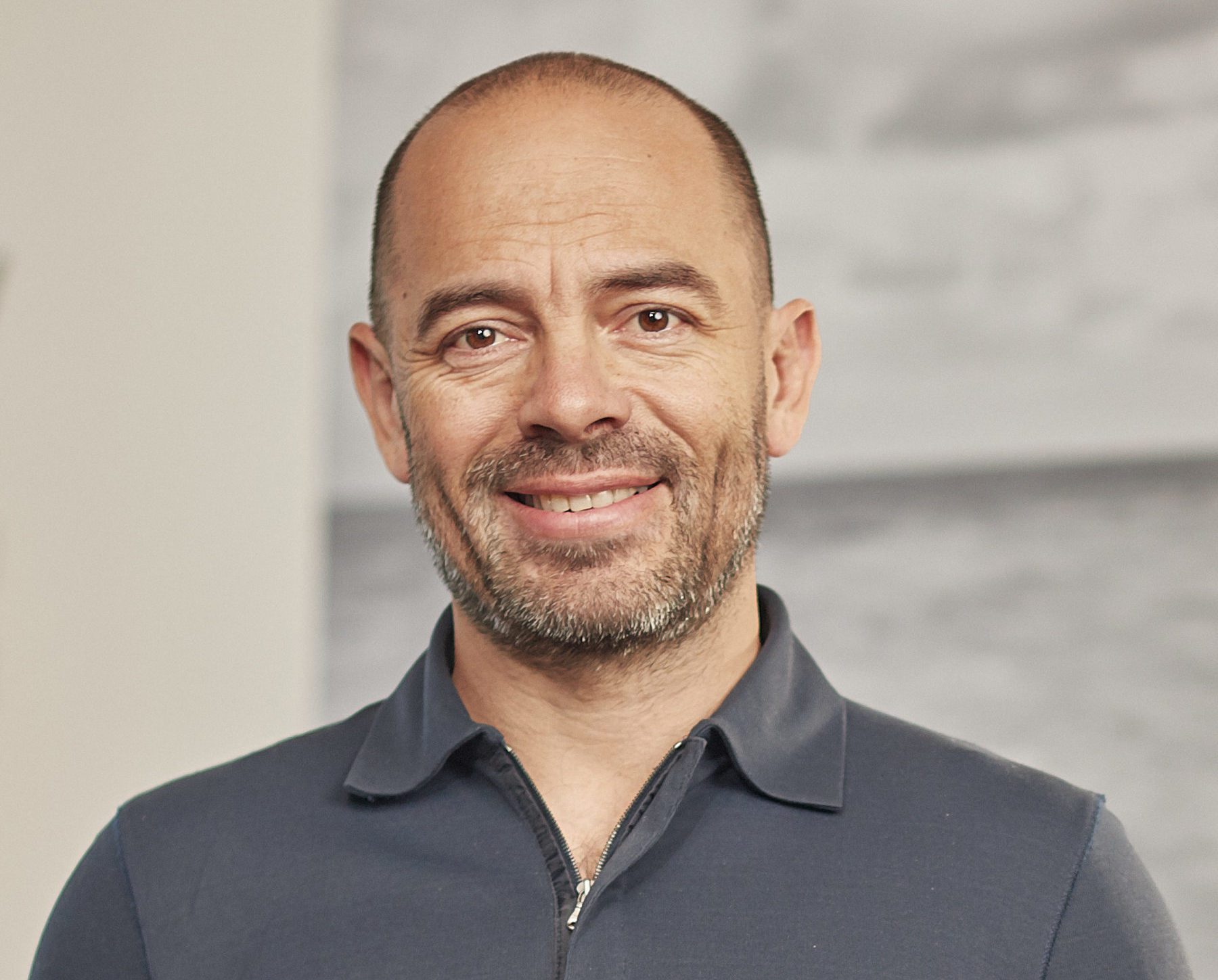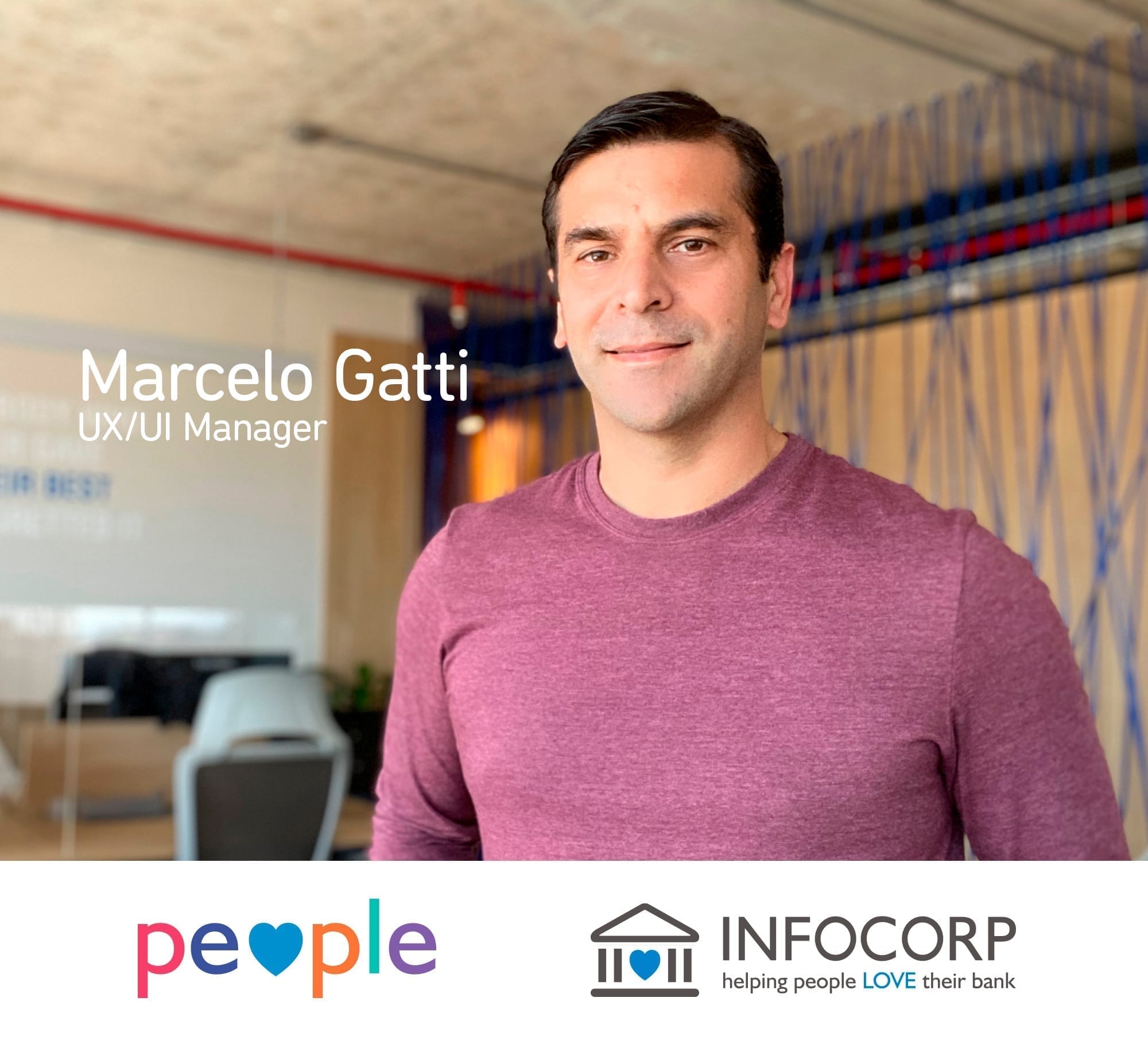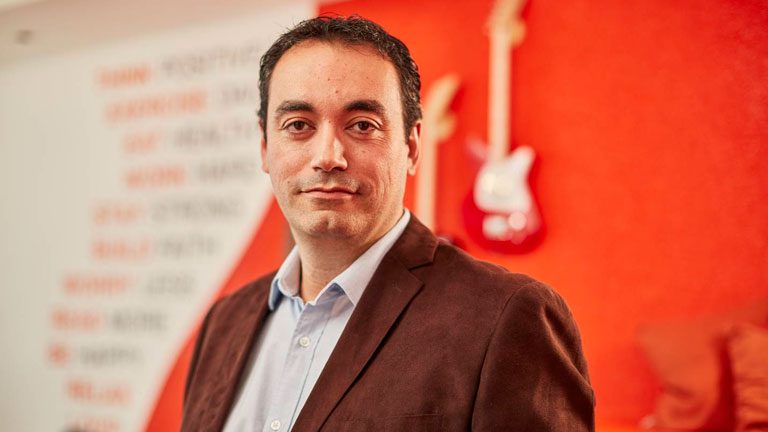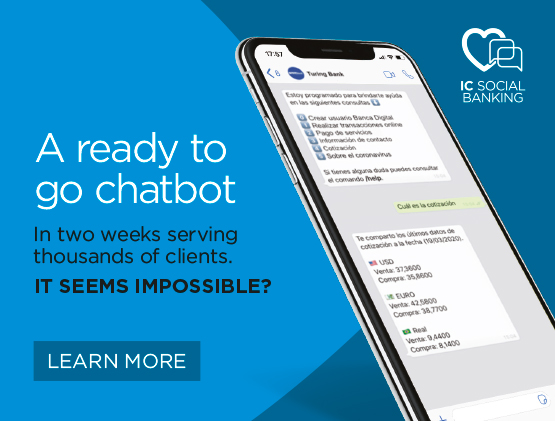
Gabriel Colla knows little about technology, as he confesses, but that didn’t keep him from founding and accompanying for almost 20 years the growth of one of the largest tech companies in Uruguay, which is now part of the Canadian Constellation Software Inc. (CSI) Group. In 1994, at the age of 21, along with his friend Andrés Rosano (who then left the company), he signed an agreement with Microsoft and cofounded Infocorp to give Excel and Word classes to companies. The company mutated until it became a regional leader in digital channels for banks, through its main product, IC Banking, an intelligent omnichannel platform. Gabriel graduated in Business Management and Direction at the IEEM, Universidad de Montevideo, and got a degree on Electronics at the ORT. But, above all, he took the “Life MBA” course. He now divides his time between working in several personal projects and the spin-offs Bankingly, Prisma, ICTecnología and ICVentures (which do not belong to CSI).
Q: Let’s talk about Inforcorp’s beginnings. How did the idea come up 26 years ago?
G: First, let’s rid ourselves of the myth that it was a great idea and I was visionary. Truth is, I wanted to do stuff from a short age, and this evolved into different formats. I started working in my brother’s company building computers, and that’s where I met Andrés Rosano. He was a little older than me, with deep technical knowledge. That’s when Microsoft showed up wanting to sell computer software, so they’d be released with Windows and DOS, and that’s when we became aware of what Microsoft was. This was around ’92. Microsoft was very young, it was just becoming popular in the world. In between lunches and daily conversations, one day it came up: “Hey, how about we do something together? What’s the worst that could happen?” And then one of Microsoft’s employees who came to sell us stuff said: “‘Tà’, perhaps you should come to Buenos Aires,” but it was more like some working proposal at Microsoft, the offer wasn’t clear.
We both went to Buenos Aires because we were interested due to the company; we had to understand which software to buy, how to install it, etc. And right there, there was a meeting for possible Microsoft distributors in Argentina, what they called a Partner Program. We didn’t know what it was, and when they told us we said, “This might be interesting for us.” But they halted us by saying it wouldn’t be possible until a Microsoft office was set up, and that was two or three years away. The typical “We’ll call you when the time is right.”
So, in the following months, every time this employee came to sell, we would tell him, “But maybe we can find a way, maybe if we go with this other format, or if you give us a representation in Argentina and we operate as an Argentinian subsidiary…” This persistence paid out in the end. He said, “Look, truth is, I don’t know if this is even possible, but come and talk with my boss in another visit to Argentina, and if he feels encouraged to somehow push the corporation’s limits, we may look into launching the program in Uruguay before an office is set up.” Nevertheless, he did make it clear that we were just getting started, and they couldn’t risk having only one partner in Uruguay.
The first person to trust us was Eugenio Beaufrand, one of the first employees Microsoft had in the world. He heard us and looked at us like saying “these kids are crazy, but they are cute crazy, let’s give them a chance,” and he gave us his vote of confidence. And thanks to the twists of life, many years later Eugenio ended up being an investor at Bankingly, an Infocorp spin-off.
So, our beginnings had to do with a set of casuistic situations, and probably a couple of components that I think we had: insistence and persistence. Insistence was very important, and that started with Infocorp’s DNA and is maintained until today through our “wanting to do things right.” We did everything genuinely and honestly from the beginning, willfully, with quality, professionally, from our inexperience as two young kids, but trying to always give our best.
Q: And how did you get into technology and computers? Was it because of your brother’s company?
G: We should begin with my parents’ store. A small store where eventually home appliances started being sold. Besides selling glasses, cups and dishes, luckily, there were tape recorders, walkmans, things that needed to be plugged in and had batteries. Being in the store was like a game to me. When the first gadget with a voice sound came out, my brother and I thought “here’s something that blows our minds.”
My brother preferred playing music and dancing… He’s all about the effect created by the gadget, what it generates on the outside. I, without knowing it, went to the gadget’s heart and opened it, and I was interested in understanding the insides. I wanted to know more about the gadget, transistors, resistances, currents sparing, breaking. And that curiosity led me to open the gadgets and then try to close them. And they didn’t always close, the pieces weren’t always back in place, and that’s when my father said, “You’ll have to learn electronics.”
I was never about degrees, I cared about being in class. And I quickly learned some things on electronics that let me get my first paid, formal job at the age of 17. I started working for a power generator manufacturing company, I built transformers, boards, soldered stuff, and that was how I got closer to the world of computers from the inside.
Then, when I met Andrés Rosano, who is a Software Engineer, I became interested in computing as to what the computer produced. And then, out of necessity, I became an Excel teacher. I had learned to use Excel to keep my personal accounting so I’d make it to the end of the month. When Infocorp was born, Andrés became a Windows and Word teacher and I taught Excel.
Q: Do you keep a walkman or tape recorder from that time?
G: Yes, yes. I actually have a small memory chest in which I keep the first board I built for the first voltage regulator, which was something technological. I also have my first walkman, my first computer and my first iPhone. I have those physical things that are some sort of “evolution museum” for me.
Q: We should have that museum at Infocorp’s offices.
G: Yes. You touch a kind of soft spot. I’d love to have it done some day. I thought about it when we opened the new offices, I even had it almost completely designed, and then life made us spend that time on other stuff, and it was set aside. But I’d love it, because I want to keep the essence, and I think it’s important for us to always remember where we come from. There’s also the possibility of writing a book, because there are stories that deserve to be told.
Q: You started a company almost by chance, and at some point you ended up leading over 200 people. When did you think of yourself as an entrepreneur? And how did you manage to create the company’s culture?
G: I probably never thought of myself as an entrepreneur. I started seeing myself as such after Endeavor was born, and now I feel a little more empathic with that word. Although I’m also very careful, because I honestly think that all humans are entrepreneurs. When we are born, we all start up in life, and that enterprising attitude is what is now suddenly highlighted in those of us who have created a business, who have “succeeded,” and I think that’s taking a word that belongs to all of mankind. It would be like taking words like happiness or empathy. It is true that I have an innate impulse, as well as the ability to convince, sell, inspire, listen, solve, fix… A myriad of things that maybe a leader should combine. From the beginning, I took on the role of looking at the business globally, solving problems, analyzing how to tune the knobs in the “n” dimensions of a company to make something happen.
Q: Were you a good boss?
G: That’s for people to say (laughs). But I know that people had the feeling that I was extremely demanding. However, that’s how many people feel that they learned something, or were able to achieve things they didn’t even think they could do before.
Q: What mistakes did you make?
G: I was an expert at making the Peter Principal mistake. I learned that in university eventually. It has to do with taking someone, who is probably good at a given task, and making them grow rapidly, really encouraging them to improve, giving them opportunities and challenges until they are turned into something completely “bad” for this final challenge. I’d eventually take the errands person, who was very good and happy in that job, and give them a chance to be a salesperson, then chief of sales, until I would turn them into a person both they and I disliked.
I think that’s because of a very high standard I have always had for myself, due to feeling that I should be training, making things more flexible, growing and shaping myself at the speed of the company’s needs. And I felt everybody had to do it as well. That ended up being positive on the one hand. A lot of people, due to the education we get in Uruguay, thought less of themselves and discovered they had a huge talent. But there was a lot of suffering for others as well.
Luckily, my leadership skills ended up becoming more humanistic in time. I learned from myself and others, and that eventually became a part of my way of leading.
Q: What would you tell young people with talent and will to start up? Can they grow and achieve their maximum potential in a company such as Infocorp?
G: I think Infocorp now offers people the possibility to achieve their technical and human potential as well as that of any other kind, which includes financial and personal achievement too.
Infocorp has possibilities of every hue to grant the freedom that each person wants to take on. If someone has technical knowledge and wants to devote to that technical knowledge with increasing skill, depth, and doesn’t want to start their own business, they’ll find the opportunity to do so in a team where their talent will be key for the rest to shine and for the magic of the sum of the parts to happen.
There’s also people who, because of the stage they are in life, need more time for themselves, more family time, and they’ll have it. I think that there needs to be space for personal and family time, and that we could all need it, to be more conscious about ourselves and “how” to do our jobs rather than “what” to do.
I think that the examples have been set. We have real cases of people who wanted to evolve, and that in a given moment had to face the decision of having to leave their jobs in order to start their own business, and in the end, they were able to do it without leaving their job and be fully exposed to the risk of entrepreneurship.
I think there are all kinds of flavors, colors and sizes for that to happen. And in the middle, a bunch of gray areas that are very interesting, let’s say. Because people are dynamic. I think that today, the conditions are set for everyone to feel that they can be fulfilled as human beings, professionals, and financially in the company.
Q: How are you feeling today, after selling the company to CIS?
Happy and relieved. I sleep more soundly! I feel that a cycle has been closed, and even though I’m part of several companies’ boards, I’m also thinking about other personal projects that I’d like to start working on.






